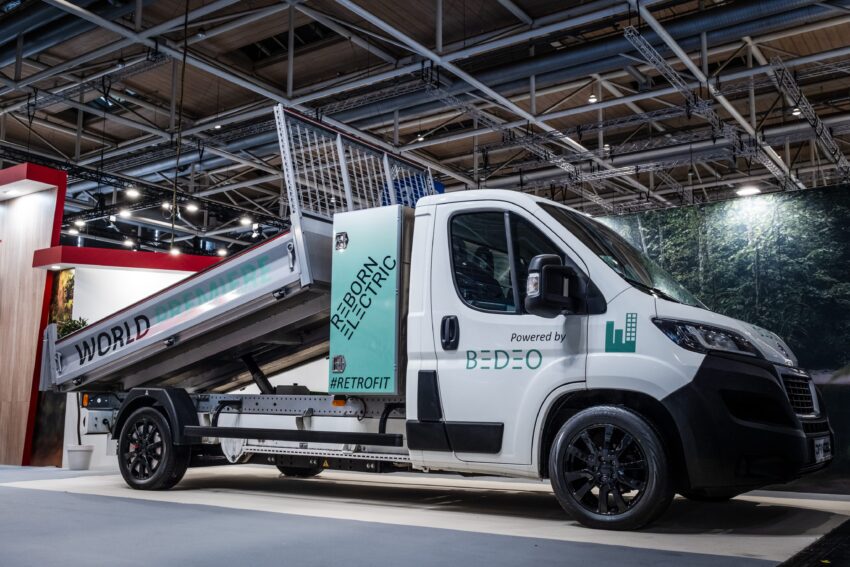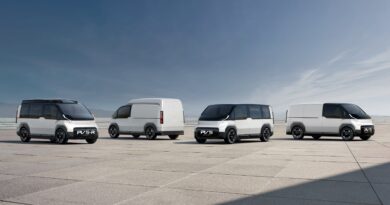Bedeo and Dangel sign deal to take Reborn Electric into Europe
Van electrification specialist Bedeo has announced a move into European markets through a new deal with France’s Automobiles Dangel.
Announced at the IAA Transportation show in Germany, the arrangement will see Dangel manufacture and retrofit the Bedeo Reborn Electric systems for the French market at its factory in Alsace.
Bedeo specialises in turning diesel vans from the Stellantis group into hybrid or pure electric models. Its all-electric BE models are capable of up to 154 miles while the hybrid RE-100 has a 73-mile electric range with a 373-mile range extender function.
The systems, approved by Stellantis, use in-wheel motors and under-floor batteries to ensure that the conversions do not affect the vans’ load area. They can be fitted to any model and body based on the Stellantis X250 platform used in vans such as the Fiat Ducato and Peugeot Boxer.
Dangel has been converting Peugeot and Citroen vans to 4×4 since 1980 and has recently expanded its work to other Stellantis brands. It will offer the Bedeo Reborn Electric kits alongside its existing 4×4 conversions.
Announcing the partnership, Osman Boyner, founder and CEO of Bedeo said: “The French retrofit market for large vans is gaining momentum, and our strategic partnership with Dangel is in direct response to this demand and need to decarbonise LCV fleets.
“Working with Dangel will enable our homologated Reborn Electric solutions to reach a wider range of French fleet users, and benefit from Dangel’s experience and expertise in LCV transformation.
“Considering the European reach and ideally situated manufacturing plant in Eastern France, this agreement could be extended to other European countries in the near future – retrofit is the most cost-effective, least intrusive way of electrifying a fleet.”
France is currently seeing high demand for EV retrofits as the government is offering an €8,000 subsidy for fleet owners converting their vehicles from ICE to EV. While still not cheap, retrofitting is seen as a more cost-effective way than buying a brand-new van for firms looking to decarbonise their fleets.






